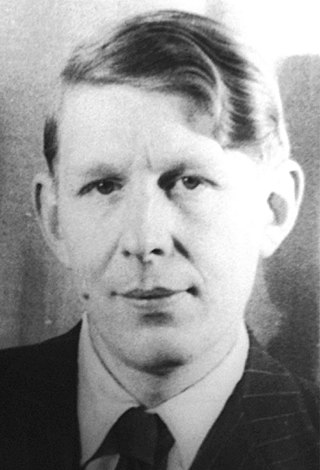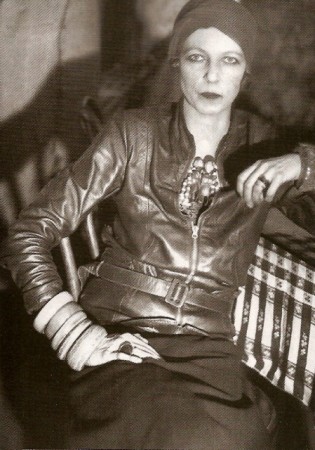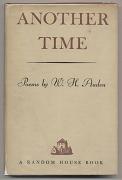
Eric Arthur Blair, better known by his pen name George Orwell, was an English novelist, essayist, journalist, and critic. His work is characterised by lucid prose, social criticism, opposition to totalitarianism, and support of democratic socialism.

Wystan Hugh Auden was a British-American poet. Auden's poetry was noted for its stylistic and technical achievement, its engagement with politics, morals, love, and religion, and its variety in tone, form, and content. Some of his best known poems are about love, such as "Funeral Blues"; on political and social themes, such as "September 1, 1939" and "The Shield of Achilles"; on cultural and psychological themes, such as The Age of Anxiety; and on religious themes such as "For the Time Being" and "Horae Canonicae".

Homage to Catalonia is George Orwell's personal account of his experiences and observations fighting in the Spanish Civil War for the POUM militia of the Republican army.

Cecil Day-Lewis, often written as C. Day-Lewis, was an Anglo-Irish poet and Poet Laureate from 1968 until his death in 1972. He also wrote mystery stories under the pseudonym of Nicholas Blake, most of which feature the fictional detective Nigel Strangeways.

St Cyprian's School was an English preparatory school for boys, which operated in the early 20th century in Eastbourne, East Sussex. Like other preparatory schools, its purpose was to train pupils to do well enough in the examinations to gain admission to leading public schools, and to provide an introduction to boarding school life.

Rudolf John Frederick Lehmann was an English poet and man of letters. He founded the periodicals New Writing and The London Magazine, and the publishing house of John Lehmann Limited.

Frederick Louis MacNeice was an Irish poet and playwright, and a member of the Auden Group, which also included W. H. Auden, Stephen Spender and Cecil Day-Lewis. MacNeice's body of work was widely appreciated by the public during his lifetime, due in part to his relaxed but socially and emotionally aware style. Never as overtly or simplistically political as some of his contemporaries, he expressed a humane opposition to totalitarianism as well as an acute awareness of his roots.

Rupert John Cornford was an English poet and communist. During the first year of the Spanish Civil War, he was a member of the POUM militia and later the International Brigades. He died while fighting against the Nationalists, at Lopera, near Córdoba.

Nancy Clara Cunard was a British writer, heiress and political activist. She was born into the British upper class, and devoted much of her life to fighting racism and fascism. She became a muse to some of the 20th century's most distinguished writers and artists, including Wyndham Lewis, Aldous Huxley, Tristan Tzara, Ezra Pound and Louis Aragon—who were among her lovers—as well as Ernest Hemingway, James Joyce, Constantin Brâncuși, Langston Hughes, Man Ray and William Carlos Williams. MI5 documents reveal that she was involved with Indian socialist leader V. K. Krishna Menon.
"September 1, 1939" is a poem by W. H. Auden written shortly after the German invasion of Poland, which would mark the start of World War II. It was first published in The New Republic issue of 18 October 1939, and in book form in Auden's collection Another Time (1940).

Ewart Milne was an Irish poet who described himself on various book jackets as "a sailor before the mast, ambulance driver and courier during the Spanish Civil War, a land worker and estate manager in England during and after World War 2" and also "an enthusiast for lost causes – national, political, social and merely human".
"Inside the Whale" is an essay in three parts written by George Orwell in 1940. It is primarily a review of Tropic of Cancer by Henry Miller with Orwell discursing more widely over English literature in the 1920s and 1930s. The biblical story of Jonah and the whale is used as a metaphor for accepting experience without seeking to change it, Jonah inside the whale being comfortably protected from the problems of the outside world. It was published, alongside two other pieces by Orwell, 11 March 1940 by Gollancz in Orwell's first collection of essays, Inside the Whale and Other Essays.

Another Time is a book of poems by W. H. Auden, published in 1940.

Sir Stephen Harold Spender was an English poet, novelist and essayist whose work concentrated on themes of social injustice and the class struggle. He was appointed U.S. Poet Laureate Consultant in Poetry to the Library of Congress in 1965.
This is a bibliography of books, plays, films, and libretti written, edited, or translated by the Anglo-American poet W. H. Auden (1907–1973). See the main entry for a list of biographical and critical studies and external links.

Horizon: A Review of Literature and Art was a literary magazine published in London, UK, between December 1939 and January 1950. Published every four weeks, it was edited by Cyril Connolly, who made it into a platform for a wide range of distinguished and emerging writers. It had a print run of 120 issues or 20 volumes.
"Poetry and the Microphone" is an essay by English writer George Orwell. It refers to his work at the BBC’s Eastern Service broadcasting half-hour-long literary programmes to India in the format of an imaginary monthly literary magazine. Written in 1943, it was not published until 1945, in New Saxon Pamphlet. Orwell had by then left the BBC.

The bibliography of George Orwell includes journalism, essays, novels, and non-fiction books written by the British writer Eric Blair (1903–1950), either under his own name or, more usually, under his pen name George Orwell. Orwell was a prolific writer on topics related to contemporary English society and literary criticism, who has been declared "perhaps the 20th century's best chronicler of English culture." His non-fiction cultural and political criticism constitutes the majority of his work, but Orwell also wrote in several genres of fictional literature.
"Epilogue For W. H. Auden" is a 76-line poem by Louis MacNeice. It was written in late 1936 and was first published in book form in Letters from Iceland, a travel book in prose and verse by W. H. Auden and Louis MacNeice (1937). MacNeice subsequently included it as the last poem in his poetry collection The Earth Compels (1938). "Epilogue For W. H. Auden" reviews the Iceland trip MacNeice and Auden had taken together in the summer of 1936; the poem mentions events that had occurred while MacNeice and Auden were in Iceland, such as the fall of Seville and the Olympic Games in Berlin.
The Spanish Cockpit is a personal account of the Spanish Civil War written by Franz Borkenau and published in late 1937. It was based on his two wartime visits to Spain in August 1936 and January 1937, visiting Barcelona, Madrid, Toledo, Valencia, and the Aragon and Andalusia fronts. The book brought Borkenau international fame. After writing a positive review of the book, describing the book as the best on the civil war, George Orwell became a personal friend of the author's and the two remained politically close.













